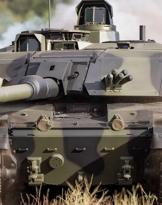"We must defend the Syrian opposition from Russian raids, but we still do not know which way to take." This is the greatest concern of the Pentagon a few hours after the first Russian air strike against, according to Moscow, "unidentified enemy cells".
The units affected, according to the White House, would belong to the rebel group Tajammu al-Aaza, funded and trained by the CIA. The problem now is to understand how to defend the moderate Syrian rebels who have been trained and equipped by the American army. The proposals that are being examined in these hours are basically two: the first, extremely dangerous, involves the use of US fighters to defend the Syrians. This option is very dangerous, we said, because it could trigger a full-scale confrontation with Russia, in a potential disaster that the administration would like to avoid. The second option, instead, involves the use of specific international radio frequencies for military pilots operating in Syrian airspace. And in the next few hours, we will at least work to adopt this preventive measure. It is an argument, however, that the American strategy has not even imagined.
The Pentagon strategists, by now it seems evident, have been displaced by the Russians. The potential enemy, has not been considered, for a strategy that is based on the support of the Syrian rebels and of those who align with the USA and the terrorists to hit. Russian air strikes were carried out in western Syria. Most Syrians trained and equipped by the United States operate in the north. The "special" Russian equipment also feeds the White House's concern. In fact, in Syria Moscow has also explained carriers armed with air-to-air missiles: a clear warning to the US, considering that neither the rebels aligned with the West nor the terrorists possess an air force.
Meanwhile, in the next few hours we could witness the first (official) counteroffensive of the land forces. The Iranians continue to amass troops for a clear pair. Russia would provide the air force, Iran that of land. China still has a logistical role, waiting to be able to deploy the first fighter-bombers, arriving in November. All ground forces are coordinated by General Qasem Soleimani (old acquaintance of the USA) commander of the Force Quds, which operates a network of delegated forces throughout the Middle East, including Syria, Iraq, Yemen and Lebanon. The Quds Force or Jerusalem Brigade, wing for special operations of the Revolutionary Guard Corps of Iran, is held responsible for the death of hundreds of American soldiers in Iraq. According to the Pentagon, the Force Quds would support terrorist groups in Lebanon, Yemen and Iraq.
A contingent of Hezbollah is also expected within the next few hours. Hezbollah, a Russian and Iranian ally, fought alongside President Bashar al-Assad's forces since the start of the Syrian civil war.
(photo: SANA)












